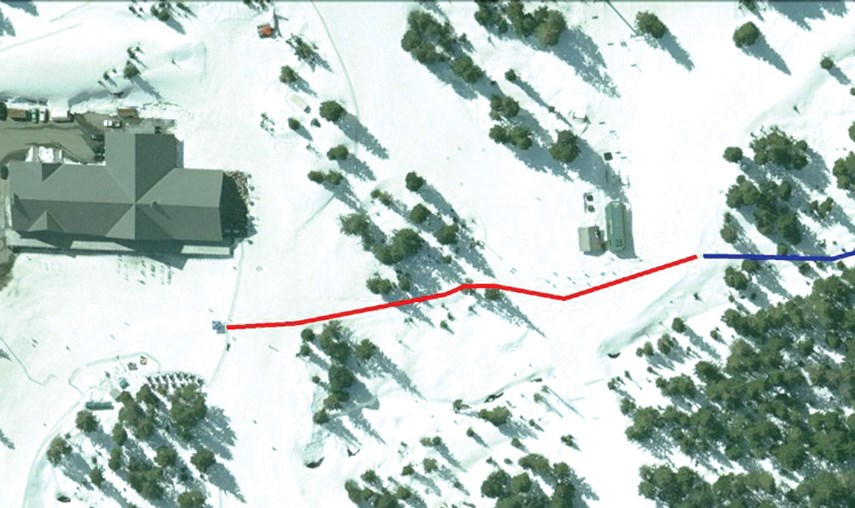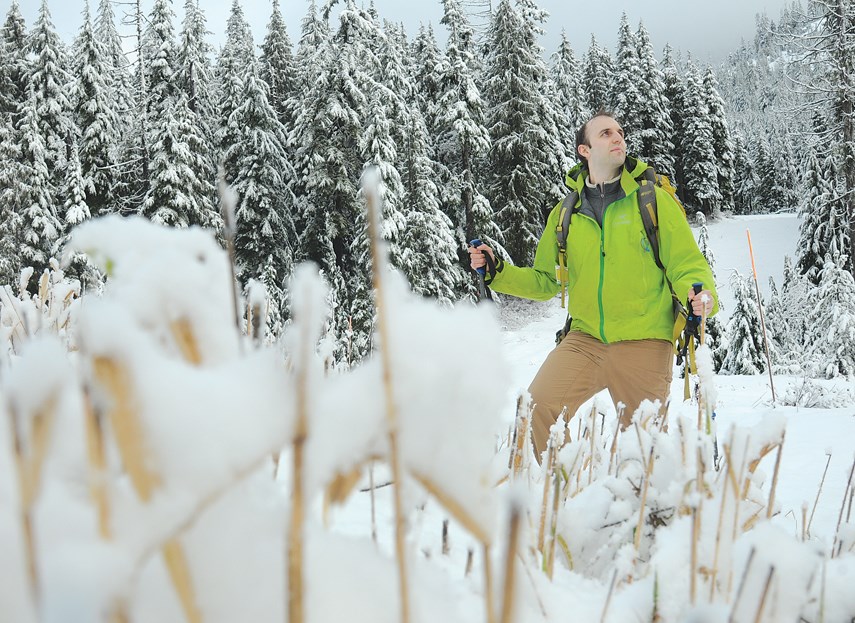Editor's note: This story has been updated to correct an error in the name of the provincial park
Hikers and snowshoers who like to make fresh tracks and watch the sun rise from a backcountry mountaintop can again access Cypress Provincial Park in the early morning hours.
The province has confirmed that an ongoing dispute between Cypress Mountain Resort and mountaineering groups has been resolved after two years. At issue was a 150-metre access corridor between the Cypress chalet and the Baden Powell Trail to the north, which hikers said they had been restricted from using until the ski hill opened.
“There was kind of a fundamental problem between the users, particularly the early risers – the keeners – who wanted to pass through the corridor before the resort was open at 9 a.m.,” said Barry Janyk, executive director of the Federation of Mountain Clubs of B.C., which has been lobbying the province heavily on the matter. “An individual should have the right to access a public park at any time.”
Cypress Mountain has a permit that allows for the operation of a commercial ski area within the larger provincial park. In the 1980s, the resort started charging people, saying they had to buy a lift ticket if they wanted to cross into the provincial park. That led to protests, which resulted in the province conducting a special commission that concluded there must be a corridor available for people wanting to access Crown land.
But starting in December 2015, resort staff began restricting access, citing safety and liability concerns, said Steve Jones, parks advocate and member of the North Shore Dawn Patrol, an informal early-morning hiking group.

“It was being enforced. People were being told by the resort staff that they weren’t allowed to cross. There was a fence set up. It was effective. There wasn’t a way to get around it,” he said. “There are a lot of people on the North Shore who like to get up into the mountains early and go on a quick adventure.”
Last week, Jones received word that their lobbying had been successful.
“Cypress resort has confirmed that they will not prevent public access through the backcountry access corridor once the park opens at 7 a.m. but they will be on site to monitor public use,” a statement from the province read.
Jones made his first return to the park early on Saturday.
“I was able to get into the park, up to Black Mountain and down to my car before 9 a.m. And I was out of the way of the skiers and the people who wanted to use it,” he said.
In a statement, the resort said no one was denied access.
“Our pre-opening operating protocols that have been developed and maintained over the past 33 winter seasons in the Cypress Mountain downhill area have not changed. They are necessary to provide a safe and orderly public recreation operation for all visitors and staff on the mountain,” the statement from spokesman Joffrey Koeman read. “In response to an expressed need by some specific mountaineering groups to have early passage through the ski area boundary and parking areas to access remote areas north of Cypress Provincial Park in daylight hours, we have provided an alternate protocol to BC Parks which addresses all safety and other issues.”
Both Jones and Janyk credit the new NDP government in Victoria for breaking the deadlock.
“To be frank, under the previous government, there was just not much willingness to uphold the parks use permit as it was written in the interest of the park visitors,” Jones said. “I don’t think it’s a coincidence.”
But, Jones warned, backcountry travel brings with it a separate batch of risks that people headed to the backcountry need to be aware of.
“People die in the park on a regular basis and way too frequently,” he said, noting that anyone crossing the corridor should have avalanche training, communications equipment, head lamps, and travel in groups. “Whenever we step into a park, we are fully responsible for our own safety.”



